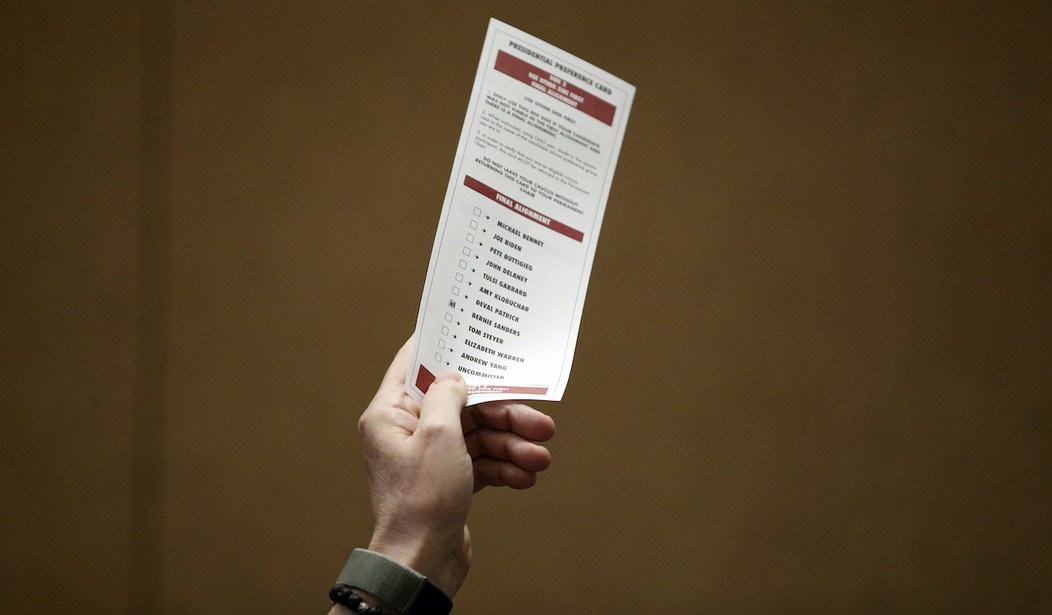With less than 40 days until Election Day, much attention is being directed toward the US Senate races in Georgia and Pennsylvania. Yet, out west, Democrats are struggling, and one key voter group keeps them up at night, which could impact the party’s performance this cycle. In Nevada, there are troubling signs that a horde of Latino voters could sit this election out. They’re unhappy about the economy and the quality of the job opportunities—which runs counter to the Biden White House’s narrative that this is the most incredible economic recovery of all time. Some operatives are increasingly anxious on the ground, as Nevada is usually held as a bellwether concerning how Latinos will vote. The only consolation Democrats can find from the lack of enthusiasm about Hispanic voters in Nevada is that they’re not voting for Republican candidate Adam Laxalt, the state’s former attorney general. Yet, one could argue that Latino voters staying home benefits Mr. Laxalt, who has polled well against incumbent Democratic Senator Catherine Cortez Masto. The RealClearPolitics average gives Mr. Laxalt a 2.2-point lead among all the aggregated polls. Democrats thought that because Ms. Masto was Latino, they could just bank on automatic support. That turned out to be a gross calculation, and one Latino voter NBC News spoke with felt that Nevada Gov. Sisolak, who is white, is more Hispanic than Masto (via NBC News):
Nevada Democrats have held up their state as a national testing ground for how to win Latino voters in 2024.
But with only 37 days until the midterm elections, there are warning signs: At the doors, on the phones and on the streets, Latinos are threatening to stay home. And that is despite the presence of the first-ever Latina elected to the U.S. Senate, Catherine Cortez Masto, at the top of the ballot.
Organizers in both parties say they see the same phenomenon developing, as do major Latino groups and the powerful Culinary Workers Union: Disgruntled over the economy and unhappy with their post-pandemic job quality, these voters, many of whom Democratic groups identify as once lifelong supporters, could sit this one out. That’s on top of the usual challenges of turning out voters for midterm elections.
“It’s what’s keeping me up at night,” said Melissa Morales, president of Somos PAC, which has spent millions of dollars on ads in English and Spanish for Cortez Masto. “What I’m looking at is: Do Latinos actually turn out to vote this year? If we see high turnout, we win in Nevada.”
Morales said after she spent time canvassing she didn’t hear waffling voters turning to Republicans; instead, they said they’d vote either for Democrats or stay home.
[...]
Maria Hernandez, who worked at the Wash & Save Laundromat, looked up at a TV affixed high in the corner of the room.
“Ooh, I don’t like him,” she said. The ad playing on the screen was one of the senator’s that claims Laxalt had ties to “big oil.”
Hernandez, who works behind the register and who does not plan to vote, didn’t have better things to say about Cortez Masto.
“For me, [Gov. Steve] Sisolak is more Hispanic than Cortez Masto,” she said, noting the irony of her comment about Nevada’s white, male governor. “She’s not in the Hispanic community. I don’t see her at church events or at parks.”
Recommended
I also don’t know why Democrats think Hispanic voters aren’t voting for the GOP—that’s precisely what’s happening. Maybe the situation is different in Nevada, but the national trend has Latinos drifting into the GOP camp. Trump saw an eight-point swing nationally, with support quintupling from his 2016 performances with the border counties in Texas. The evangelical vibes reportedly reverberating throughout the community have done two things. It’s led to a soft diaspora away from the Catholic Church, but it’s also made this voter bloc more conservative, especially on the issue of abortion.
Things could get very interesting if Laxalt can knock off Masto. It would undoubtedly provide breathing room should the GOP retake the seats in Pennsylvania or Georgia, but those last two contests are primed to be nail-biters. Georgia could head into a run-off.
Again, this situation for Democrats isn’t necessarily surprising as Joe Biden remains unpopular, with an economy in recession compounded by high inflation. How do you think voters would react to sustained economic brutalization? They’re either voting Republican or staying home—either way, both decisions don’t benefit Democrats ahead of what could be a red wave year.

























Join the conversation as a VIP Member